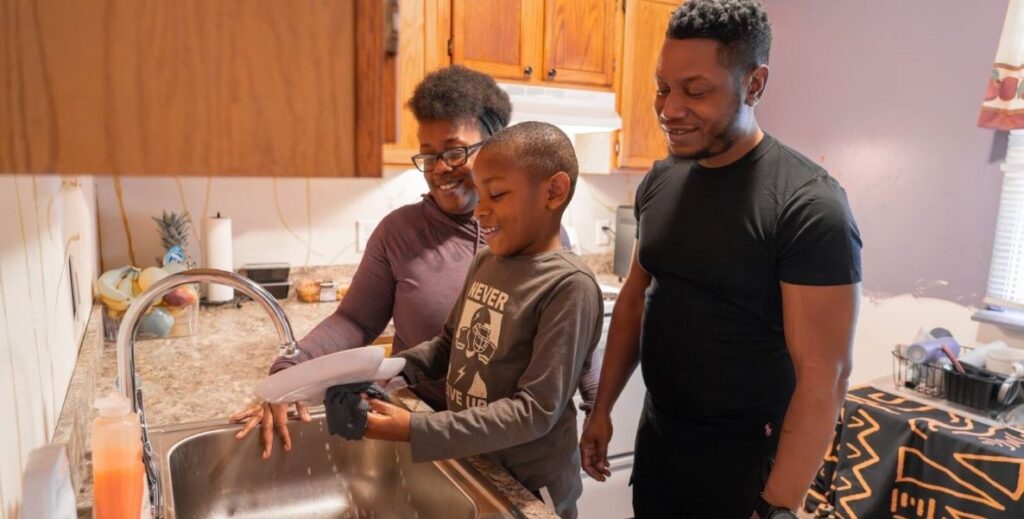Pennsylvania lawmakers are right to celebrate the investment in public education achieved in the recently passed state budget, a much-needed initial step towards equity for the children in our Commonwealth.
But for the second year in a row, they failed to include $50 million in funding for the Whole-Home Repairs Program, despite bipartisan support and proposals to take the model national. Following the release of the Pennsylvania state budget, State Senator Nikil Saval (D-Philadelphia),who introduced the initial legislation, said:
Every person in our Commonwealth deserves a home that is healthy and safe. This year’s budget contains the fruits of several important hard-fought, hard-won victories, but unfortunately, a reinvestment in the lifesaving Whole-Home Repairs Program is not yet among them. And amidst a national housing crisis, any important gains we make in our budget — for education, for care for seniors and people with disabilities, for community safety and violence prevention — are eroded when the homes that people return to at the end of the day are fundamentally unsafe.
Originally passed in 2022 with $125 million in federal pandemic aid, Whole-Home Repairs can counteract decades of disinvestment in local communities across Pennsylvania. By providing up to $50,000 to eligible residents for health and safety repairs, accessibility improvements and weatherization, the program has the potential to significantly move the needle on Pennsylvania’s affordable housing crisis.
The need is clear: Pennsylvania has some of the oldest housing stock in the country, and 1 in 4 PA voters lives in a home that needs critical repair. In Philadelphia alone, it would take an estimated $3.7 billion to repair all of the leaking roofs and crumbling walls in the city.
The impact is also clear: In the short time since Whole-Home Repairs passed, thousands of homes have been fixed throughout the Commonwealth.
Here in Philadelphia, 673 homes have received Whole-Home Repairs funding, according to the Philadelphia Housing Development Corporation, supporting and accelerating the repairs work being completed by a variety of civic and nonprofit agencies. Across the board, organizations are scaling up capacity to address the problem.
Without permanent funding for Whole-Home Repairs, thousands of Pennsylvania families will continue to live in unhealthy homes with no recourse.
At Habitat for Humanity, our in-house carpenters completed 125 home repairs this year, building relationships with homeowners while shoring up foundations, restoring heat and air conditioning, fixing leaking roofs and replacing kitchen plumbing to bring families back together around the dinner table. A portion of these projects were funded through Whole Homes Repair funding.
Eric Wilcox, a military veteran and Strawberry Mansion native, owns his childhood home, a 105-year-old rowhome. When he and his partner started homeschooling their son, they needed to find a solution to the leaking roof and sinking kitchen floor. After fighting for military benefits and searching for the necessary funding, Eric found Habitat’s repairs program and his home was soon stabilized.
Home is education. Research shows that stable, affordable housing impacts children’s educational outcomes through improved attendance, better cognitive and behavioral health and improved academic performance.
Home is medicine. Children’s Hospital of Philadelphia supports home repairs to reduce asthma triggers. Mitigating hazards and improving safety in homes also allows seniors to safety age in place in their homes and communities.
Home is safety. A University of Pennsylvania study showed that home repairs in low-income, predominantly Black neighborhoods led to a decrease in crime.
Pennsylvania lawmakers understand the need for increased funding – the PA Housing Affordability Fund (PHARE), which provides grants to municipalities for a wide range of affordable housing activities, from housing counseling to rental assistance – did see its cap increased. But because the PHARE program is so broad, it does not specifically address the acute need for home repairs to stabilize PA’s existing low-income homeowners.
Habitat for Humanity will continue to advocate for smarter, more equitable policies that unlock needed resources for affordable housing and home repair. This year, a coalition of 12 Pennsylvania Habitat affiliates coordinated the first-ever Habitat Advocacy Day in Harrisburg, meeting with dozens of legislators representing multiple counties. We are grateful to the Philadelphia delegation of State Senators and Representatives who championed this important cause.
Without permanent funding for Whole-Home Repairs, thousands of Pennsylvania families will continue to live in unhealthy homes with no recourse. For all the bipartisan support this program inspired, it’s hard to understand what it will take to prioritize the needs of local communities and deliver on the promise to Pennsylvania homeowners.
We will continue to raise our voices, communicate the need, partner with others and do the work so that everyone in Pennsylvania has a decent place to live.
Corinne O’Connell is CEO of Habitat for Humanity Philadelphia, an independently chartered affiliate of Habitat for Humanity International, the largest nonprofit homebuilder worldwide.
The Citizen welcomes guest commentary from community members who represent that it is their own work and their own opinion based on true facts that they know firsthand.

